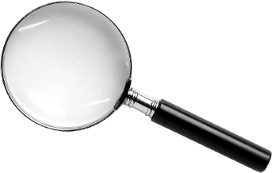Introspective Judgment

“For the time is come that judgment must begin at the house of God: . . .” ― 1 Peter 4:17
THIS “house of God” is us, dearly beloved, and this is where judgment must begin, and it must begin now; for “the time” of this judgment “is come”. Hence the title of our topic, Introspective Judgment – looking within. This is what is meant by introspective judgment. This is where all judgment ought to begin, just as Peter declared some 2,000 years ago.
And of this introspective judgment the apostle Paul also speaks, saying:
“Examine yourselves, whether ye be in the faith; prove your own selves. Know ye not your own selves, how that Jesus Christ is in you, except ye be reprobates?” ― 2 Corinthians 13:5
Here the apostle Paul counsels us to add to our examination proof of whether we be in the faith – whether our foundation be sure; whether we can affirm and know as Christians what we believe; for he admonishes us to “prove your own selves”. This is no mere verbal proof or explanation of the doctrines that we confess, but a deep soul-searching examination of our own selves, our lives, with their habits, customs, manners, etc. All things must be proven.
And as we embark upon this self-examination, let us be aware of one important fact:
“For I know nothing by myself; yet am I not hereby justified: but he that judgeth me is the Lord.” ― 1 Corinthians 4:4
The phrase by myself might perhaps be better rendered in myself; thus clarifying that the apostle is here confirming the fact that, though any of us may “know nothing” in ourselves; yet none of us are “hereby justified.” In our present condition we may not be aware of anything in us that is wrong, but we are in no wise justified in such a determination; for there may well be hidden sin of which we “know nothing”. Dearly beloved, we cannot trust our own judgment in such matters. We need to be enlightened by the word of God, the truth, as to what constitutes sin – the truth as it is in Christ Jesus, whose judgment alone is right, true, and fair. And the result of such close self-examination is given us in the 11th chapter of this same epistle:
“For if we would judge ourselves, we should not be judged.” ― 1 Corinthians 11:31
Beloved, if we would judge ourselves – if we would take more time to look and examine our own motives, our thoughts and actions – we would not need that either God or other men should judge us for our faults and shortcomings, because they will have already gone before us into judgment, and will have the sentence “forgiven” written against them.
And let us keep in mind that this introspection is to be an ongoing process, as the apostle to the Philippians declared, saying:
“Brethren, I count not myself to have apprehended: but this one thing I do, forgetting those things which are behind, and reaching forth unto those things which are before, I press toward the mark for the prize of the high calling of God in Christ Jesus. Let us therefore, as many as be perfect, be thus minded: and if in any thing ye be otherwise minded, God shall reveal even this unto you. Nevertheless, whereto we have already attained, let us walk by the same rule, let us mind the same thing” ― Philippians 3:13-16
Yet another reason why self examination is needed is found in the Lord’s injunction in Matthew 7:1-5:
“Judge not, that ye be not judged. For with what judgment ye judge, ye shall be judged: and with what measure ye mete, it shall be measured to you again. And why beholdest thou the mote that is in thy brother’s eye, but considerest not the beam that is in thine own eye? Or how wilt thou say to thy brother, Let me pull out the mote out of thine eye; and, behold, a beam is in thine own eye? Thou hypocrite, first cast out the beam out of thine own eye; and then shalt thou see clearly to cast out the mote out of thy brother's eye.”
This sadly is a ditch into which we all are too prone to fall – being keen to discern error, falsehood and wrong in others, all the while being oblivious to our own blindness. What good is that discernment which only discerns error in others, and not in us? Does not Jesus warn us, Know ye not that by the judgment with which ye judge, ye yourselves must be judged? and by the measure which ye mete out to others, ye yourselves must be measured? If we truly wish to be of service to others, and help guide them away from error, then let us first ask the Lord to reveal the beams in our own eyes, and humbly ask him for grace to remove them; for only as we become well acquainted with our own faults and shortcomings will we then manifest any true patience and sympathy for other erring souls, like us.
And speaking of that spirit of harsh criticism, the apostle James admonishes us, by saying:
“Speak not evil one of another, brethren. He that speaketh evil of his brother, and judgeth his brother, speaketh evil of the law, and judgeth the law: but if thou judge the law, thou art not a doer of the law, but a judge.” ― James 4:11
Dearly beloved, if we do such things, we show to all that we care nothing for doing right ourselves, but rather judging what is right for others. Better for us that we should learn to speak and think well of one another, and so judge them as we ourselves would have them judge us. Better also to be a doer of right, and so set a Christian example of right-doing for our weaker brethren.
“But why dost thou judge thy brother? or why dost thou set at nought thy brother? for we shall all stand before the judgment seat of Christ. For it is written, As I live, saith the Lord, every knee shall bow to me, and every tongue shall confess to God. So then every one of us shall give account of himself to God. Let us not therefore judge one another anymore: but judge this rather, that no man put a stumblingblock or an occasion to fall in his brother's way.” ― Romans 14:10-13
Beloved, if we must judge, then let us judge this – that we put no stumbling block or occasion to fall before our brother’s way who are seeking the right way by overlooking the sin in our own lives. Let us cease from sin ourselves, and live no longer therein.
And lest we think that such judging of others is a little thing of no account to God, consider well the words of the apostle Paul:
“Therefore thou art inexcusable, O man, whosoever thou art that judgest: for wherein thou judgest another, thou condemnest thyself; for thou that judgest doest the same things. But we are sure that the judgment of God is according to truth against them which commit such things. And thinkest thou this, O man, that judgest them which do such things, and doest the same, that thou shalt escape the judgment of God? Or despisest thou the riches of his goodness and forbearance and longsuffering; not knowing that the goodness of God leadeth thee to repentance?” ― Romans 2:1-4
And well might this be spoken to everyone of us, as it was then to the Jews in Rome; for they knew the word well, and were well acquainted with its precepts and its teachings; yet this had not led them to humbleness of heart, and meekness, or to self-searching and self-examining of their own lives according to the word of God; instead it led many of them to become keen judges of others, discerning discriminators of wrong in others, and wranglers over the finer distinctions of truth, but certainly not livers or lovers of it. Let each of us remember that it was the goodness of God that led us to repentance. It was his kindness toward us that, when we were guilty of the worst censure, guilty of the worst death, that God manifested such wondrous kindness toward us wayward sinners, and extended to us his mercy and grace to help us in time of need. So let us to be toward the wayward and erring among us, dearly beloved, for each and every one of us have been the blessed recipients of God’s boundless love and grace. Let us learn to be tender, compassionate, and pitiful, toward our erring brethren, as our Lord and Savior is toward us; for are not we weak and prone to failure and stumbling? So let us strengthen our brethren that in time of need, they too can strengthen us.
And I wish us, in closing, to consider what lies at the root of that spirit of condemnation:
“It is the one who has every reason to distrust his own principles who is keenly alive to the failings of others. If there were not some lack in our own experience, we would not be so suspicious of our brethren. It is the one whose conscience condemns him that so readily passes judgment. Let everyone tremble and be afraid of himself. Let him see that his own heart is right with God. Let him weed his own garden; he will find enough to keep him busily employed. If he does this work faithfully, he will not have time to find fault with the gardens of others. Instead of judging our brethren, let us judge ourselves. . . .” ― The Review & Herald, “Judge Not,” Oct. 29, 1901
Beloved, this is my admonition to me and to each of you. The reason why we are so keen judges of others is because we discern the flaws in ourselves, and in order to cover up and justify ourselves before men, we condemn others. We are admonished to deal with these things in ourselves, to become busy bodies in minding our own gardens, in pulling the weeds of sin from our own lives. Why should we do this? That we may set the example for others, and help them, just like Jesus says. He doesn’t say not to help our brother with the mote in his eye, but to first cast the beam out of our own eye, and then go and help those we love.
And so I want us to end with this thought of Matthew 5:7. How shall we sum this up? What is the conclusion of the matter? Beloved, it is this:
“Blessed are the merciful: for they shall obtain mercy.”
Learn of what God says about looking within.
Gardening - Fall Activities
These are important things to do in your garden now!
The Lunar Sabbath - Part 3 - The Divine Number
What is the purpose for numbers? And what does that have to do with the fourth commandment?
Health Corner - The Dangers of Supplements
You could be consuming something that you think is healthy, when it could be contributing to disease and even the very problem you are trying to avoid.
A Medical Missionary Academy
The Living Waters Medical Missionary Academy in Fiji opened its doors in the second semester of 2011... Find out more.
Recipe
Simply Yummy Pancakes
Think on These Things
An Addiction all Christians should have...
Seventh Day Home Church Fellowships is an association of Sabbath-keeping groups, which through web & tele-conferencing provides means for study, fellowship, and jointly organized missionary projects.
Website: www.seventhdayhomechurchfellowships.org
Email: admin@seventhdayhomechurchfellowships.org
Seventh Day Home Church Fellowships:
P.O. Box 262, Laconia, NH 03246, U.S.A.
